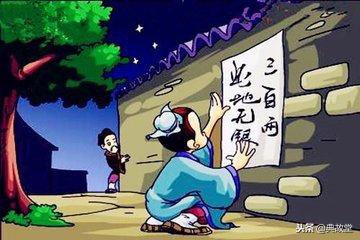此地无银三百两 literally means: “There is no 300 taels silvers buried here.”
The origin of this phrase is a very silly short story.
One day, a person named Zhang San found a bag containing 300 taels of silver. He was overjoyed, but he worried about consequences if he immediately spent it. So he buried the silver under a wall, and put a sign over it, to insist there is no silver buried here.
His neighbour, Wang Er, saw this sign and was curious. When nobody is looking, he dug the earth and found the silver. He decided to keep it himself, but he was also worried about being found out. He put a sign next to it: “The neighbour Wang Er did not steal it.”
Now, we have two signs over this area. 此地無銀三百兩。隔壁王二不曾偷。

The idiom and funny story basically means a person is trying to cover up something, but is doing it in such a poor way that it makes him even more suspicious. Just like what these two geniuses did when they found the silver and tried to keep it for themselves.
Occasionally this idiom could be abbreviated to the four word version: 此地無銀.